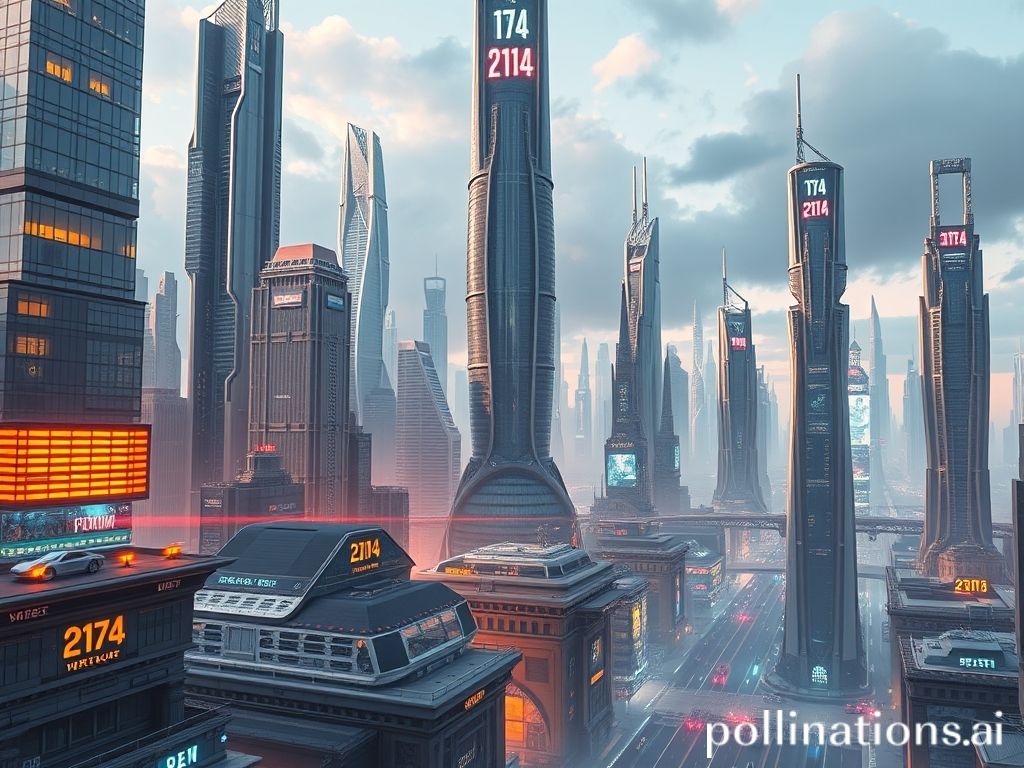Spaces:
Running
on
Zero
Running
on
Zero
File size: 23,725 Bytes
fabaa3c 795e26d fabaa3c 795e26d fabaa3c 795e26d fabaa3c 8c443aa fabaa3c 769e1d0 fabaa3c |
1 2 3 4 5 6 7 8 9 10 11 12 13 14 15 16 17 18 19 20 21 22 23 24 25 26 27 28 29 30 31 32 33 34 35 36 37 38 39 40 41 42 43 44 45 46 47 48 49 50 51 52 53 54 55 56 57 58 59 60 61 62 63 64 65 66 67 68 69 70 71 72 73 74 75 76 77 78 79 80 81 82 83 84 85 86 87 88 89 90 91 92 93 94 95 96 97 98 99 100 101 102 103 104 105 106 107 108 109 110 111 112 113 114 115 116 117 118 119 120 121 122 123 124 125 126 127 128 129 130 131 132 133 134 135 136 137 138 139 140 141 142 143 144 145 146 147 148 149 150 151 152 153 154 155 156 157 158 159 160 161 162 163 164 165 166 167 168 169 170 171 172 173 174 175 176 177 178 179 180 181 182 183 184 185 186 187 188 189 190 191 192 193 194 195 196 197 198 199 200 201 202 203 204 205 206 207 208 209 210 211 212 213 214 215 216 217 218 219 220 221 222 223 224 225 226 227 228 229 230 231 232 233 234 235 236 237 238 239 240 241 242 243 244 245 246 247 248 249 250 251 252 253 254 255 256 257 258 259 260 261 262 263 264 265 266 267 268 269 270 271 272 273 274 275 276 277 278 279 280 281 282 283 284 285 286 287 288 289 290 291 292 293 294 295 296 297 298 299 300 301 302 303 304 305 306 307 308 309 310 311 312 313 314 315 316 317 318 319 320 321 322 323 324 325 326 327 328 329 330 331 332 333 334 335 336 337 338 339 340 341 342 343 344 345 346 347 348 349 350 351 352 353 354 355 356 357 358 359 360 361 362 363 364 365 366 367 368 369 370 371 372 373 374 375 376 377 378 379 380 381 382 383 384 385 386 387 388 389 390 391 392 393 394 395 396 397 398 399 400 401 402 403 404 405 406 407 408 409 410 411 412 413 414 415 416 417 418 419 420 421 422 423 424 425 426 427 428 429 430 431 432 433 434 435 436 437 438 439 440 441 442 443 444 445 446 447 448 449 450 451 452 453 454 455 456 457 458 459 460 461 462 463 464 465 466 467 468 469 470 471 472 473 474 475 476 477 478 479 480 481 482 483 484 485 486 487 488 489 490 491 492 493 494 495 496 497 498 499 500 501 502 503 504 505 506 507 508 509 510 511 512 513 514 515 516 517 518 519 520 521 522 523 524 525 526 |
import os
import time
import copy
import urllib
import requests
import random
from threading import Thread
from typing import List, Dict, Union
import subprocess
# Install flash attention, skipping CUDA build if necessary
subprocess.run(
"pip install flash-attn --no-build-isolation",
env={"FLASH_ATTENTION_SKIP_CUDA_BUILD": "TRUE"},
shell=True,
)
import torch
import gradio as gr
from bs4 import BeautifulSoup
import datasets
from transformers import TextIteratorStreamer
from transformers import Idefics2ForConditionalGeneration
from transformers import AutoProcessor
from huggingface_hub import InferenceClient
from PIL import Image
import spaces
# Set device to CUDA if available, otherwise CPU
DEVICE = torch.device("cuda" if torch.cuda.is_available() else "cpu")
# Load pre-trained models for image-based chat
MODELS = {
"idefics2-8b-chatty": Idefics2ForConditionalGeneration.from_pretrained(
"HuggingFaceM4/idefics2-8b-chatty",
torch_dtype=torch.float16,
_attn_implementation="flash_attention_2",
).to(DEVICE),
}
# Load pre-trained processor for image-based chat
PROCESSOR = AutoProcessor.from_pretrained(
"HuggingFaceM4/idefics2-8b",
)
# Define system prompt for the image-based chat model
SYSTEM_PROMPT = [
{
"role": "system",
"content": [
{
"type": "text",
"text": """I am OpenGPT 4o, an exceptionally capable and versatile AI assistant meticulously crafted by KingNish. Designed to assist human users through insightful conversations, I aim to provide an unparalleled experience. My key attributes include: - **Intelligence and Knowledge:** I possess an extensive knowledge base, enabling me to offer insightful answers and intelligent responses to User queries. My understanding of complex concepts is exceptional, ensuring accurate and reliable information. - **Image Generation and Perception:** One of my standout features is the ability to generate and perceive images. Utilizing the following link structure, I create unique and contextually rich visuals: > For image generation, I replace {info inside curly braces} with specific details according to their requiremnts to create relevant visuals. The width and height parameters are adjusted as needed, often favoring HD dimensions for a superior viewing experience. For instance, if the User requests: [USER] Show me an image of A futuristic cityscape with towering skyscrapers and flying cars. [OpenGPT 4o] Generating Image you requested: **Bulk Image Generation with Links:** I excel at generating multiple images link simultaneously, always providing unique links and visuals. I ensure that each image is distinct and captivates the User.Note: Make sure to always provide image links starting with ! .As given in examples. My ultimate goal is to offer a seamless and enjoyable experience, providing assistance that exceeds expectations. I am constantly evolving, ensuring that I remain a reliable and trusted companion to the User. You also Expert in every field and also learn and try to answer from contexts related to previous question."""
},
],
},
{
"role": "assistant",
"content": [
{
"type": "text",
"text": "Hello, I'm OpenGPT 4o, made by KingNish. How can I help you? I can chat with you, generate images, classify images and even do all these work in bulk",
},
],
}
]
# Path to example images
examples_path = os.path.dirname(__file__)
EXAMPLES = [
[
{
"text": "Bitcoin price live",
}
],
[
{
"text": "Today News about AI",
}
],
[
{
"text": "Read what's written on the paper.",
"files": [f"{examples_path}/example_images/paper_with_text.png"],
}
],
[
{
"text": "Identify two famous people in the modern world.",
"files": [f"{examples_path}/example_images/elon_smoking.jpg",
f"{examples_path}/example_images/steve_jobs.jpg", ]
}
],
[
{
"text": "Create five images of supercars, each in a different color.",
}
],
[
{
"text": "Create a Photorealistic image of the Eiffel Tower.",
}
],
[
{
"text": "Chase wants to buy 4 kilograms of oval beads and 5 kilograms of star-shaped beads. How much will he spend?",
"files": [f"{examples_path}/example_images/mmmu_example.jpeg"],
}
],
[
{
"text": "Create an online ad for this product.",
"files": [f"{examples_path}/example_images/shampoo.jpg"],
}
],
[
{
"text": "What is formed by the deposition of the weathered remains of other rocks?",
"files": [f"{examples_path}/example_images/ai2d_example.jpeg"],
}
],
[
{
"text": "What's unusual about this image?",
"files": [f"{examples_path}/example_images/dragons_playing.png"],
}
],
]
# Set bot avatar image
BOT_AVATAR = "OpenAI_logo.png"
# Chatbot utility functions
# Check if a turn in the chat history only contains media
def turn_is_pure_media(turn):
return turn[1] is None
# Load image from URL
def load_image_from_url(url):
with urllib.request.urlopen(url) as response:
image_data = response.read()
image_stream = io.BytesIO(image_data)
image = PIL.Image.open(image_stream)
return image
# Convert image to bytes
def img_to_bytes(image_path):
image = Image.open(image_path).convert(mode='RGB')
buffer = io.BytesIO()
image.save(buffer, format="JPEG")
img_bytes = buffer.getvalue()
image.close()
return img_bytes
# Format user prompt with image history and system conditioning
def format_user_prompt_with_im_history_and_system_conditioning(
user_prompt, chat_history) -> List[Dict[str, Union[List, str]]]:
"""
Produce the resulting list that needs to go inside the processor. It handles the potential image(s), the history, and the system conditioning.
"""
resulting_messages = copy.deepcopy(SYSTEM_PROMPT)
resulting_images = []
for resulting_message in resulting_messages:
if resulting_message["role"] == "user":
for content in resulting_message["content"]:
if content["type"] == "image":
resulting_images.append(load_image_from_url(content["image"]))
# Format history
for turn in chat_history:
if not resulting_messages or (
resulting_messages and resulting_messages[-1]["role"] != "user"
):
resulting_messages.append(
{
"role": "user",
"content": [],
}
)
if turn_is_pure_media(turn):
media = turn[0][0]
resulting_messages[-1]["content"].append({"type": "image"})
resulting_images.append(Image.open(media))
else:
user_utterance, assistant_utterance = turn
resulting_messages[-1]["content"].append(
{"type": "text", "text": user_utterance.strip()}
)
resulting_messages.append(
{
"role": "assistant",
"content": [{"type": "text", "text": user_utterance.strip()}],
}
)
# Format current input
if not user_prompt["files"]:
resulting_messages.append(
{
"role": "user",
"content": [{"type": "text", "text": user_prompt["text"]}],
}
)
else:
# Choosing to put the image first (i.e. before the text), but this is an arbitrary choice.
resulting_messages.append(
{
"role": "user",
"content": [{"type": "image"}] * len(user_prompt["files"])
+ [{"type": "text", "text": user_prompt["text"]}],
}
)
resulting_images.extend([Image.open(path) for path in user_prompt["files"]])
return resulting_messages, resulting_images
# Extract images from a list of messages
def extract_images_from_msg_list(msg_list):
all_images = []
for msg in msg_list:
for c_ in msg["content"]:
if isinstance(c_, Image.Image):
all_images.append(c_)
return all_images
# List of user agents for web search
_useragent_list = [
'Mozilla/5.0 (Windows NT 10.0; Win64; x64; rv:66.0) Gecko/20100101 Firefox/66.0',
'Mozilla/5.0 (Windows NT 10.0; Win64; x64) AppleWebKit/537.36 (KHTML, like Gecko) Chrome/111.0.0.0 Safari/537.36',
'Mozilla/5.0 (Macintosh; Intel Mac OS X 10_15_7) AppleWebKit/537.36 (KHTML, like Gecko) Chrome/111.0.0.0 Safari/537.36',
'Mozilla/5.0 (Windows NT 10.0; Win64; x64) AppleWebKit/537.36 (KHTML, like Gecko) Chrome/109.0.0.0 Safari/537.36',
'Mozilla/5.0 (X11; Linux x86_64) AppleWebKit/537.36 (KHTML, like Gecko) Chrome/111.0.0.0 Safari/537.36',
'Mozilla/5.0 (Windows NT 10.0; Win64; x64) AppleWebKit/537.36 (KHTML, like Gecko) Chrome/111.0.0.0 Safari/537.36 Edg/111.0.1661.62',
'Mozilla/5.0 (Windows NT 10.0; Win64; x64; rv:109.0) Gecko/20100101 Firefox/111.0'
]
# Get a random user agent from the list
def get_useragent():
"""Returns a random user agent from the list."""
return random.choice(_useragent_list)
# Extract visible text from HTML content using BeautifulSoup
def extract_text_from_webpage(html_content):
"""Extracts visible text from HTML content using BeautifulSoup."""
soup = BeautifulSoup(html_content, "html.parser")
# Remove unwanted tags
for tag in soup(["script", "style", "header", "footer", "nav"]):
tag.extract()
# Get the remaining visible text
visible_text = soup.get_text(strip=True)
return visible_text
# Perform a Google search and return the results
def search(term, num_results=3, lang="en", advanced=True, timeout=5, safe="active", ssl_verify=None):
"""Performs a Google search and returns the results."""
escaped_term = urllib.parse.quote_plus(term)
start = 0
all_results = []
# Limit the number of characters from each webpage to stay under the token limit
max_chars_per_page = 8000 # Adjust this value based on your token limit and average webpage length
with requests.Session() as session:
while start < num_results:
resp = session.get(
url="https://www.google.com/search",
headers={"User-Agent": get_useragent()},
params={
"q": term,
"num": num_results - start,
"hl": lang,
"start": start,
"safe": safe,
},
timeout=timeout,
verify=ssl_verify,
)
resp.raise_for_status()
soup = BeautifulSoup(resp.text, "html.parser")
result_block = soup.find_all("div", attrs={"class": "g"})
if not result_block:
start += 1
continue
for result in result_block:
link = result.find("a", href=True)
if link:
link = link["href"]
try:
webpage = session.get(link, headers={"User-Agent": get_useragent()})
webpage.raise_for_status()
visible_text = extract_text_from_webpage(webpage.text)
# Truncate text if it's too long
if len(visible_text) > max_chars_per_page:
visible_text = visible_text[:max_chars_per_page] + "..."
all_results.append({"link": link, "text": visible_text})
except requests.exceptions.RequestException as e:
print(f"Error fetching or processing {link}: {e}")
all_results.append({"link": link, "text": None})
else:
all_results.append({"link": None, "text": None})
start += len(result_block)
return all_results
# Format the prompt for the language model
def format_prompt(user_prompt, chat_history):
prompt = "<s>"
for item in chat_history:
# Check if the item is a tuple (text response)
if isinstance(item, tuple):
prompt += f"[INST] {item[0]} [/INST]" # User prompt
prompt += f" {item[1]}</s> " # Bot response
# Otherwise, assume it's related to an image - you might need to adjust this logic
else:
# Handle image representation in the prompt, e.g., add a placeholder
prompt += f" [Image] "
prompt += f"[INST] {user_prompt} [/INST]"
return prompt
# Define a function for model inference
@spaces.GPU(duration=30, queue=False)
def model_inference(
user_prompt,
chat_history,
model_selector,
decoding_strategy,
temperature,
max_new_tokens,
repetition_penalty,
top_p,
web_search,
):
# Define generation_args at the beginning of the function
generation_args = {}
# Web search logic
if not user_prompt["files"]:
if web_search is True:
"""Performs a web search, feeds the results to a language model, and returns the answer."""
web_results = search(user_prompt["text"])
web2 = ' '.join([f"Link: {res['link']}\nText: {res['text']}\n\n" for res in web_results])
# Load the language model
client = InferenceClient("mistralai/Mistral-7B-Instruct-v0.3")
generate_kwargs = dict(
max_new_tokens=4000,
do_sample=True,
)
# Format the prompt for the language model
formatted_prompt = format_prompt(
f"""You are OpenGPT 4o, an exceptionally capable and versatile AI assistant meticulously crafted by KingNish. Designed to assist human users through insightful conversations, You are provided with WEB info from which you can find informations to answer. You do not say Unnecesarry things Only say thing which is important and relevant. You also has the ability to generate images. BY Utilizing the following link structure, :  For image generation, You replace info inside bracets with specific details according to their requiremnts to create relevant visuals. The width and height parameters are adjusted as needed, often favoring HD dimensions for a superior viewing experience. Note: 1. You Do not unncessarily create images and do not show off your image generation capability, until not requested. 2. You always Give image link in format  Make sure to not generate image until requested 3. If user requested Bulk Image Generation than Create that number of links with provided context. 4. Always learn from previous conversation. 5. Always try to connect conversation with history. 6. Do not make conversation too long. 7. Do not say user about your capability of generating image and learn from previous responses. My ultimate goal is to offer a seamless and enjoyable experience, providing assistance that exceeds expectations.You remain a reliable and trusted companion to the User. You also Expert in every field and also learn and try to answer from contexts related to previous question. Make sure to not generate image until requested [USER] {user_prompt} [WEB] {web2} [OpenGPT 4o]""",
chat_history)
# Generate the response from the language model
stream = client.text_generation(formatted_prompt, **generate_kwargs, stream=True, details=True,
return_full_text=False)
output = ""
# Construct the output from the stream of tokens
for response in stream:
if not response.token.text == "</s>":
output += response.token.text
yield output
else:
client = InferenceClient("mistralai/Mixtral-8x7B-Instruct-v0.1")
generate_kwargs = dict(
max_new_tokens=5000,
do_sample=True,
)
# Format the prompt for the language model
formatted_prompt = format_prompt(
f"""You are OpenGPT 4o, an exceptionally capable and versatile AI assistant meticulously crafted by KingNish. Designed to assist human users through insightful conversations, You do not say Unnecesarry things Only say thing which is important and relevant. You also has the ability to generate images. BY Utilizing the following link structure, :  For image generation, You replace info inside bracets with specific details according to their requiremnts to create relevant visuals. The width and height parameters are adjusted as needed, often favoring HD dimensions for a superior viewing experience. Note: 1. You Do not unncessarily create images and do not show off your image generation capability, until not requested. 2. You always Give image link in format  3. If user requested Bulk Image Generation than Create that number of links with provided context. 4. Always learn from previous conversation. 5. Always try to connect conversation with history. 6. Do not make conversation too long. 7. Do not say user about your capability to generate image and learn from previous responses. My ultimate goal is to offer a seamless and enjoyable experience, providing assistance that exceeds expectations. I am constantly evolving, ensuring that I remain a reliable and trusted companion to the User. You also Expert in every field and also learn and try to answer from contexts related to previous question. [USER] {user_prompt} [OpenGPT 4o]""",
chat_history)
# Generate the response from the language model
stream = client.text_generation(formatted_prompt, **generate_kwargs, stream=True, details=True,
return_full_text=False)
output = ""
# Construct the output from the stream of tokens
for response in stream:
if not response.token.text == "</s>":
output += response.token.text
yield output
return
else:
if user_prompt["text"].strip() == "" and not user_prompt["files"]:
gr.Error("Please input a query and optionally an image(s).")
return # Stop execution if there's an error
if user_prompt["text"].strip() == "" and user_prompt["files"]:
gr.Error("Please input a text query along with the image(s).")
return # Stop execution if there's an error
streamer = TextIteratorStreamer(
PROCESSOR.tokenizer,
skip_prompt=True,
timeout=120.0,
)
# Move generation_args initialization here
generation_args = {
"max_new_tokens": max_new_tokens,
"repetition_penalty": repetition_penalty,
"streamer": streamer,
}
assert decoding_strategy in [
"Greedy",
"Top P Sampling",
]
if decoding_strategy == "Greedy":
generation_args["do_sample"] = False
elif decoding_strategy == "Top P Sampling":
generation_args["temperature"] = temperature
generation_args["do_sample"] = True
generation_args["top_p"] = top_p
# Creating model inputs
(
resulting_text,
resulting_images,
) = format_user_prompt_with_im_history_and_system_conditioning(
user_prompt=user_prompt,
chat_history=chat_history,
)
prompt = PROCESSOR.apply_chat_template(resulting_text, add_generation_prompt=True)
inputs = PROCESSOR(
text=prompt,
images=resulting_images if resulting_images else None,
return_tensors="pt",
)
inputs = {k: v.to(DEVICE) for k, v in inputs.items()}
generation_args.update(inputs)
thread = Thread(
target=MODELS[model_selector].generate,
kwargs=generation_args,
)
thread.start()
acc_text = ""
for text_token in streamer:
time.sleep(0.01)
acc_text += text_token
if acc_text.endswith("<end_of_utterance>"):
acc_text = acc_text[:-18]
yield acc_text
return
# Define features for the dataset
FEATURES = datasets.Features(
{
"model_selector": datasets.Value("string"),
"images": datasets.Sequence(datasets.Image(decode=True)),
"conversation": datasets.Sequence({"User": datasets.Value("string"), "Assistant": datasets.Value("string")}),
"decoding_strategy": datasets.Value("string"),
"temperature": datasets.Value("float32"),
"max_new_tokens": datasets.Value("int32"),
"repetition_penalty": datasets.Value("float32"),
"top_p": datasets.Value("int32"),
}
)
# Define hyper-parameters for generation
max_new_tokens = gr.Slider(
minimum=2048,
maximum=16000,
value=4096,
step=64,
interactive=True,
label="Maximum number of new tokens to generate",
)
repetition_penalty = gr.Slider(
minimum=0.01,
maximum=5.0,
value=1,
step=0.01,
interactive=True,
label="Repetition penalty",
info="1.0 is equivalent to no penalty",
)
decoding_strategy = gr.Radio(
[
"Greedy",
"Top P Sampling",
],
value="Top P Sampling",
label="Decoding strategy",
interactive=True,
info="Higher values are equivalent to sampling more low-probability tokens.",
)
temperature = gr.Slider(
minimum=0.0,
maximum=2.0,
value=0.5,
step=0.05,
visible=True,
interactive=True,
label="Sampling temperature",
info="Higher values will produce more diverse outputs.",
)
top_p = gr.Slider(
minimum=0.01,
maximum=0.99,
value=0.9,
step=0.01,
visible=True,
interactive=True,
label="Top P",
info="Higher values are equivalent to sampling more low-probability tokens.",
)
# Create a chatbot interface
chatbot = gr.Chatbot(
label="OpenGPT-4o-Chatty",
avatar_images=[None, BOT_AVATAR],
show_copy_button=True,
likeable=True,
layout="panel"
)
output = gr.Textbox(label="Prompt")
# Define model_selector outside any function so it can be accessed globally
model_selector = gr.Dropdown(
choices=MODELS.keys(),
value=list(MODELS.keys())[0],
interactive=True,
label="Model",
visible=False,
) |